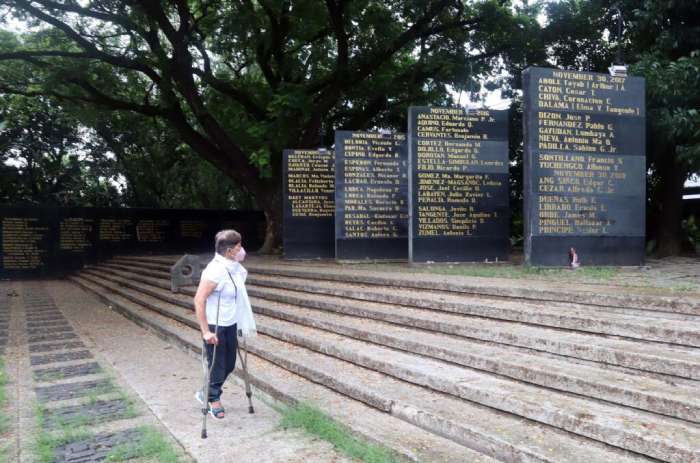Never forget: Why you should watch martial law documentary ‘11,103’
Never forget.
This is the unflinching message of “11,103,” a docu-film telling the harsh realities victims faced during Ferdinand E. Marcos’ martial law.
The documentary, directed by Miguel Alcazaren (Puti) and Jeannette Ifurung (Marcos, the Fall of a Dictator), tells the stories of 11 survivors who experienced human rights abuses that occurred during the Marcos regime.
The titular number stands for the number of victims of martial law that were recognized by the state under Republic Act No. 10368, a.k.a. the Human Rights Victims Reparation and Recognition Act of 2013. Amnesty International documented extensive human rights violations from 1972 to 1981, including the imprisonment of 70,000, extrajudicial killing of 3,200, and torture of 34,000.
As subjects in the film pointed out, this number symbolizes more than the monetary reparation provided to those affected. But it was a much-needed recognition and acknowledgment by the Philippine government that these heinous acts did happen during Marcos’ rule.
No fiction, just testimonies
Since Ferdinand “Bongbong” Marcos Jr. rose to power in Malacañang, movies about his father’s controversial rule have been made—Maid in Malacañang and Katips that tell different sides of the story.
However, as Historian Xiao Chua pointed out during the #EDSA37 screening of 11,103, some elements of these are fictionalized and fictionalized. While taking this step in creative works like films is okay, he said they should not include “historical blunder.”
In a day and age where historical distortion—yes, distortion, not revisionism as Philippine historians said—hearing the stories of experiences of the victims is significant. This is how we battle the fake news and myths about our history that are rampant online.
Tales that must live on
The stories told by the victims are haunting and not easy to hear, but they should be remembered. One victim, Puring Viernes, shared about how her family in Misamis Occidental was massacred after members of the military accused her of being part of the New People’s Army just because she was active in church. Healer and activist Hilda Narciso was raped, and Mariam Kanda lost her family in the Palimbang Massacre of 1974. These people are more than a statistic, each holding their own awful tales.

But these testimonies are more stories from victims of martial law that weren’t part of the 11,103 that have to be told.
“Less than 0.007%, not even 1%, of those who were given reparations came from Muslim Mindanao when we know that thousands of them actually suffered during that period,” Human Rights violations Victims’ Memorial Commission director Chuck Crisanto said in the film.
Learning about what happened during martial law goes beyond its yearly commemoration on Sept. 21 or the celebration of People Power Revolution on Feb. 26. 11,103 is a must-watch for Filipinos and those who wish to see it can organize a screening through Active Vista.
The post <b>Never forget: Why you should watch martial law documentary ‘11,103’</b> appeared first on WE THE PVBLIC.
Source: we the pvblic
No comments